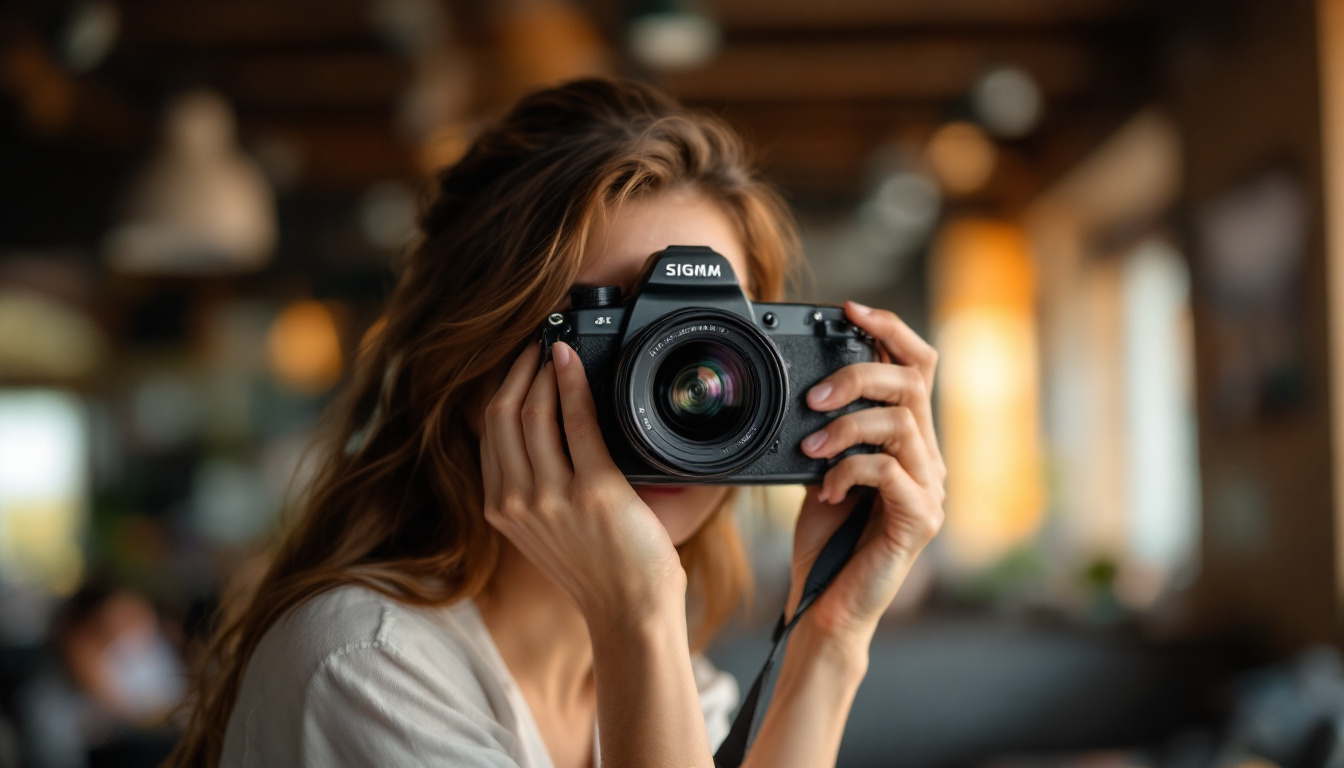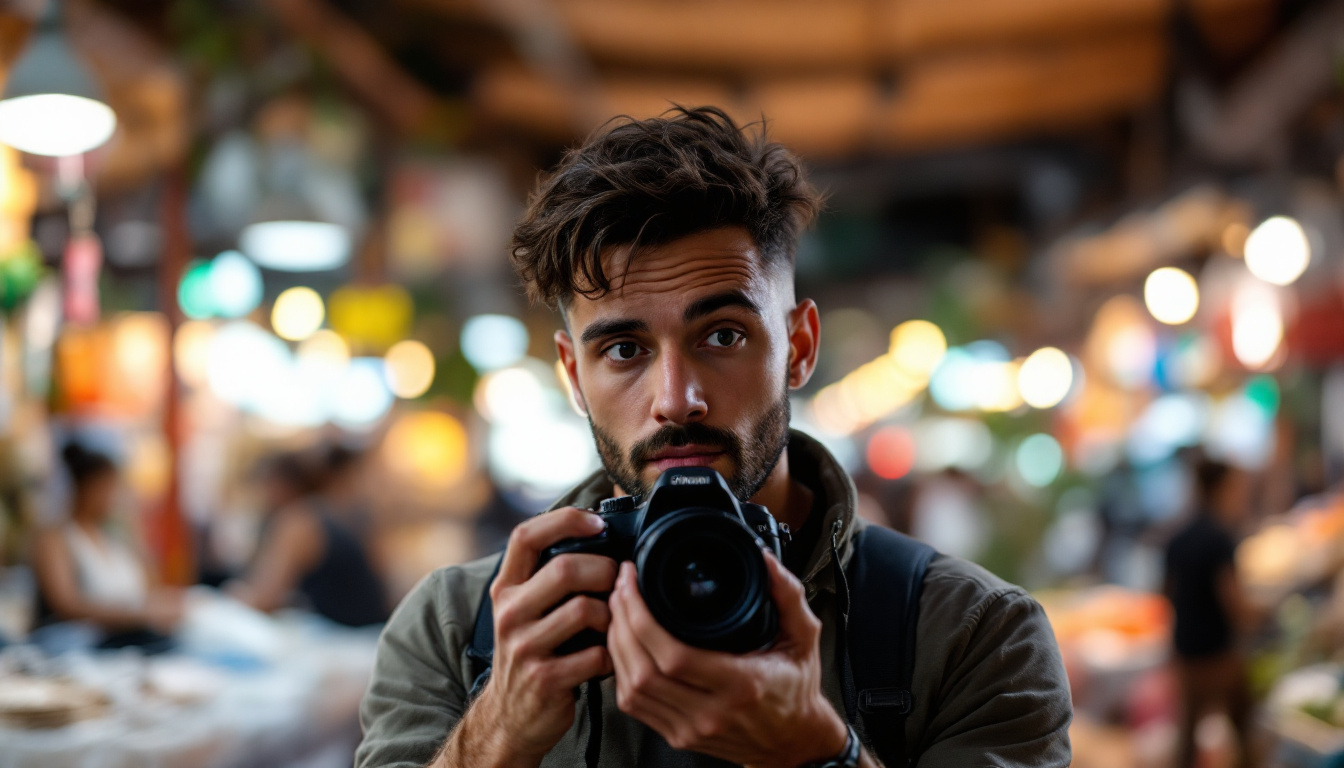Photography is an art form that captures moments, tells stories, and evokes emotions. Whether you’re drawn to the vibrant colors of nature, the candid expressions of people, or the intricate details of everyday objects, photography offers a unique way to see the world. For those interested in pursuing photography as a career or a serious hobby, understanding the path to becoming a skilled photographer is essential. This guide will explore the steps, skills, and considerations necessary to embark on this creative journey.
Understanding the Basics of Photography
Learn the Fundamentals
Before diving into the world of photography, it’s crucial to understand the basics. This includes familiarizing yourself with essential concepts such as exposure, aperture, shutter speed, and ISO. These elements work together to create a well-exposed photograph. Understanding how to manipulate these settings will allow you to have greater creative control over your images.
Investing time in learning about composition is equally important. The rule of thirds, leading lines, and framing are just a few techniques that can transform a simple photo into a compelling image. Studying these principles will enhance your ability to capture visually appealing photographs.
Finally, grasping the basics of lighting is vital. Natural light, artificial light, and the direction and quality of light can dramatically affect the mood and clarity of your photographs. Experimenting with different lighting conditions will help you develop a keen eye for what works best in various scenarios.
Choose the Right Equipment
Photography equipment can range from simple to complex, and choosing the right gear is a crucial step. Beginners often start with a basic DSLR or mirrorless camera, which offers manual controls and interchangeable lenses. These cameras provide the flexibility to learn and grow as a photographer.
Investing in a good quality lens is often more important than the camera body itself. Lenses determine the sharpness, depth of field, and overall look of your images. A versatile lens, such as a 50mm prime or a 24-70mm zoom, can be a great starting point.
Don’t overlook the importance of accessories like tripods, camera bags, and memory cards. A sturdy tripod can stabilize your shots, especially in low-light conditions, while a reliable camera bag protects your gear. High-capacity memory cards ensure you never miss a moment due to lack of storage.
Developing Your Photography Skills
Practice Regularly
The key to becoming a proficient photographer is consistent practice. Set aside time each week to shoot, experiment with different settings, and explore various subjects. This hands-on experience will help you understand your camera’s capabilities and improve your technical skills.
Consider participating in photography challenges or projects. These can provide structure and motivation to keep shooting regularly. Whether it’s a 365-day photo challenge or a themed project, these activities encourage creativity and push you to try new techniques.
Reviewing your work critically is also important. Analyze your photos to identify strengths and areas for improvement. Constructive self-critique will guide your learning process and help you refine your style.
Seek Feedback and Learn from Others
Joining photography communities, both online and offline, can be incredibly beneficial. These groups offer opportunities to share your work, receive feedback, and learn from more experienced photographers. Engaging with a community can also provide inspiration and support as you develop your skills.
Consider attending workshops, seminars, or photography classes. These educational opportunities can offer valuable insights into specific techniques, genres, or equipment. Learning from professionals in the field can accelerate your growth and broaden your understanding of photography.
Don’t hesitate to reach out to mentors or photographers you admire. Many professionals are willing to share their knowledge and experiences. Building relationships with mentors can provide guidance and open doors to new opportunities in your photography journey.
Building a Photography Portfolio
Select Your Best Work
As you accumulate a body of work, it’s important to curate a portfolio that showcases your skills and style. Select images that represent your strengths and the type of photography you wish to pursue. A well-organized portfolio is essential for attracting clients or applying for photography-related opportunities.
Ensure your portfolio is diverse yet cohesive. It should demonstrate your ability to handle different subjects and lighting conditions while maintaining a consistent aesthetic. This balance will make your portfolio more appealing to potential clients or employers.
Regularly update your portfolio to reflect your latest and best work. As you grow and improve as a photographer, your portfolio should evolve to showcase your current capabilities and artistic vision.
Create an Online Presence
In today’s digital age, having an online presence is crucial for photographers. Create a professional website to display your portfolio, share your contact information, and provide details about your services. A well-designed website can serve as a powerful marketing tool.
Utilize social media platforms to reach a broader audience. Platforms like Instagram, Facebook, and Pinterest are popular for sharing visual content and connecting with potential clients. Consistently posting high-quality images and engaging with your audience can help build your brand and reputation.
Consider starting a photography blog or vlog to share your experiences, tips, and insights. This content can establish you as an authority in the field and attract followers who are interested in your work and expertise.
Exploring Photography Genres
Experiment with Different Styles
Photography offers a wide range of genres to explore, from portrait and landscape to street and wildlife photography. Experimenting with different styles can help you discover your passion and hone your skills in specific areas. Each genre presents unique challenges and opportunities for creativity.

Portrait photography focuses on capturing the essence of individuals or groups. It requires strong interpersonal skills and the ability to create a comfortable environment for your subjects. Mastering lighting and posing techniques is essential for producing compelling portraits.
Landscape photography involves capturing the beauty of nature and the environment. It often requires patience and an understanding of natural lighting conditions. Composing striking landscapes involves finding interesting perspectives and utilizing elements like leading lines and foreground interest.
Find Your Niche
As you gain experience, you may find yourself drawn to a particular niche within photography. Specializing in a niche can set you apart from other photographers and attract clients looking for specific expertise. Whether it’s wedding photography, food photography, or architectural photography, finding your niche allows you to focus your efforts and develop a unique style.
Research the market demand for your chosen niche and identify potential clients or collaborators. Understanding your target audience will help you tailor your portfolio and marketing efforts to attract the right opportunities.
Continuously refine your skills and stay updated with trends and techniques in your chosen niche. This commitment to growth and specialization will enhance your reputation and increase your chances of success in the competitive field of photography.
Turning Photography into a Career
Build a Client Base
Transitioning from hobbyist to professional photographer involves building a client base. Start by offering your services to friends, family, or local businesses to gain experience and build a portfolio of paid work. Word-of-mouth referrals can be a powerful tool for attracting new clients.

Network with other professionals in the industry, such as event planners, models, or makeup artists. Collaborating with others can lead to new opportunities and expand your reach within the photography community.
Consider offering promotions or discounts to attract new clients and encourage repeat business. Providing exceptional service and delivering high-quality work will help establish a positive reputation and generate referrals.
Set Up a Photography Business
Once you have a steady client base, consider setting up a formal photography business. This involves registering your business, obtaining necessary licenses, and setting up a business bank account. Having a professional business structure can enhance your credibility and streamline your operations.
Develop a pricing strategy that reflects your skills, experience, and market demand. Research competitors’ pricing to ensure your rates are competitive yet sustainable. Clearly communicate your pricing and services to clients to avoid misunderstandings.
Invest in marketing and branding to promote your photography business. This includes creating a logo, business cards, and promotional materials. Consistent branding across all platforms will help establish your identity and attract clients who resonate with your style.
Continuing Education and Growth
Stay Updated with Technology
The field of photography is constantly evolving with advancements in technology. Staying updated with the latest camera equipment, editing software, and photography techniques is essential for maintaining a competitive edge. Regularly explore new tools and technologies to enhance your workflow and creative capabilities.

Participate in online courses, webinars, or workshops to learn about emerging trends and techniques. These educational opportunities can provide valuable insights and keep you informed about industry developments.
Engage with photography communities and forums to exchange knowledge and experiences with fellow photographers. Sharing insights and learning from others can inspire new ideas and approaches to your work.
Embrace Lifelong Learning
Photography is a lifelong journey of learning and growth. Embrace the process of continuous improvement and experimentation. Challenge yourself to step outside your comfort zone and explore new subjects, styles, and techniques.
Reflect on your progress and set goals for your photography journey. Whether it’s mastering a new editing technique, expanding your portfolio, or entering photography competitions, setting goals will keep you motivated and focused on your development.
Remember that photography is an art form that allows for personal expression and creativity. Enjoy the journey, celebrate your achievements, and continue to evolve as a photographer. With dedication and passion, you can turn your love for photography into a fulfilling and rewarding pursuit.
As you continue to refine your skills and embrace the art of photography, consider the advantages of a platform designed to streamline your workflow. Cliqora is here to enhance the way you share your creative work with clients. With features like super fast resumable uploads, permanent access for clients via our mobile app, and private sharing through AI face detection, Cliqora empowers you to manage your content, clients, contracts, and payments with ease. Take the first step in elevating your photography business—register for early access and create your first project on Cliqora for free. Embrace the future of photography with Cliqora.


